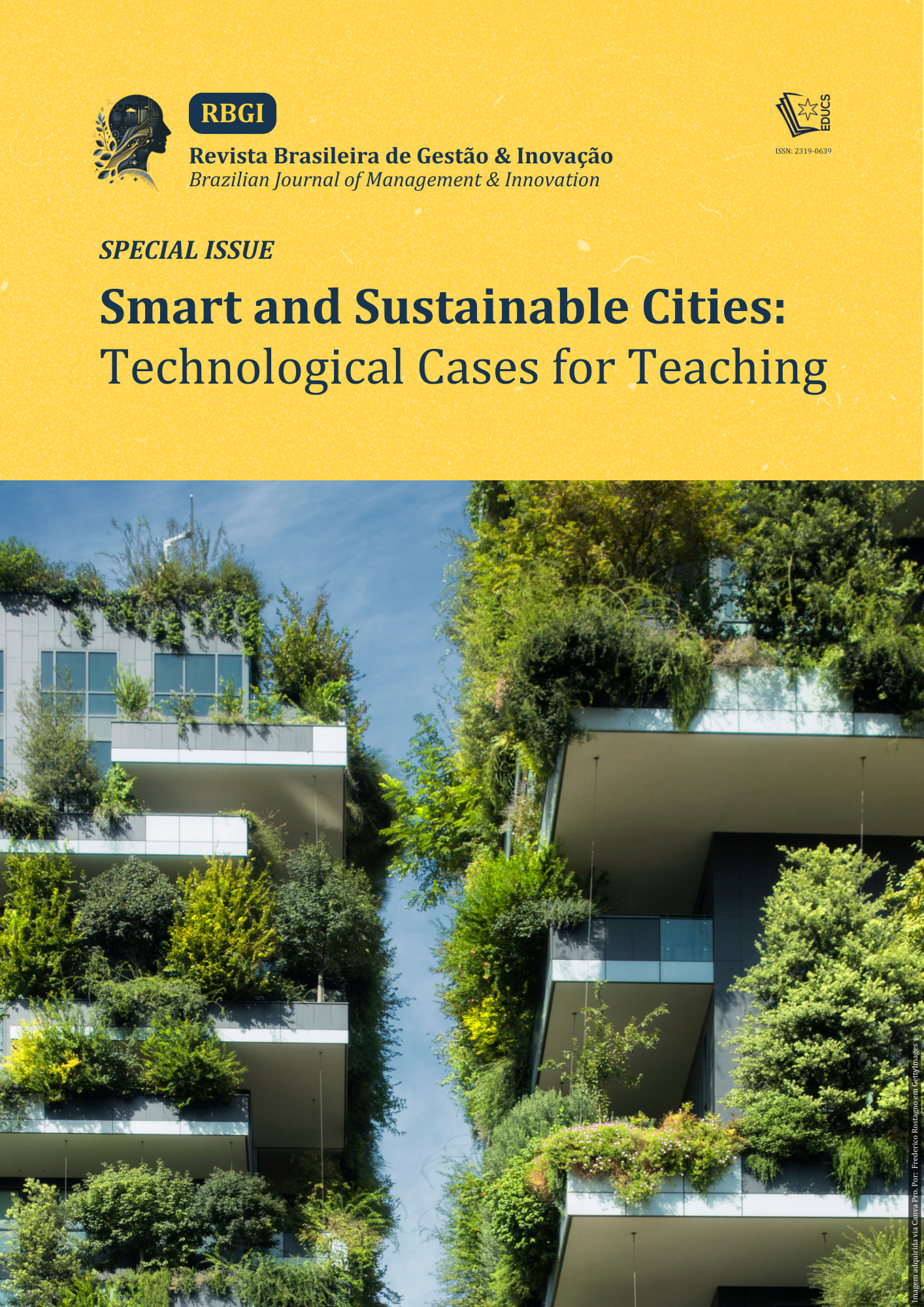O POVO REALMENTE FALA? UM CASO SOBRE PLANEJAMENTO E GESTÃO DEMOCRÁTICA NA CIDADE FICTÍCIA DE CRUZINHA
DOI:
https://doi.org/10.18226/23190639.v11n4.04Keywords:
Plano Diretor, Estatuto da Cidade, Desenvolvimento Sustentável, Gestão Democrática, Participação ComunitáriaAbstract
Objetivo: Analisar o processo de implementação do Plano Diretor no município fictício de Cruzinha em 2005, motivado pela Lei Federal nº 10.257/2001 (Estatuto da Cidade), com foco nos desafios da gestão democrática e nas tensões entre desenvolvimento sustentável e pressões políticas.
Design/Método/Abordagem: Estudo de caso único, de natureza qualitativa, que descreve e analisa o processo de elaboração e tramitação do Plano Diretor de Cruzinha, com ênfase nas dinâmicas de participação comunitária, nos dilemas éticos enfrentados e nas influências políticas observadas. A pesquisa se baseia na descrição dos eventos ocorridos e nas dificuldades encontradas durante o processo.
Originalidade/Relevância: O estudo oferece uma análise detalhada de um caso específico de implementação de um Plano Diretor municipal sob a égide do Estatuto da Cidade. Sua relevância reside em ilustrar os desafios práticos da tradução de princípios legais em políticas urbanas concretas, especialmente no que concerne à participação pública e à conciliação de diferentes interesses em um contexto político local.
Principais Resultados/Descobertas: O processo de implementação do Plano Diretor em Cruzinha enfrentou desafios significativos na promoção da participação total da população, apesar dos esforços realizados por meio de audiências e consultas públicas. A tramitação do plano na Câmara de Vereadores revelou a complexidade de conciliar a visão de desenvolvimento sustentável com a influência de emendas parlamentares que, em alguns casos, ameaçaram os princípios originais do plano.
Contribuições/Implicações Teóricas/Metodológicas: O estudo contribui para a literatura sobre planejamento urbano e gestão democrática ao fornecer um exemplo concreto das dificuldades inerentes à implementação de instrumentos legais como o Plano Diretor. Metodologicamente, reforça a importância de estudos de caso para a compreensão das dinâmicas complexas que envolvem a formulação e implementação de políticas públicas em nível local.
Contribuições Sociais/Gerenciais: As descobertas do estudo oferecem insights relevantes para gestores públicos, urbanistas e atores sociais envolvidos em processos de planejamento urbano participativo. Ao destacar os desafios na obtenção de ampla participação e na resistência a princípios de sustentabilidade frente a pressões políticas, o caso de Cruzinha serve como um alerta e um ponto de reflexão para aprimorar as estratégias de engajamento comunitário e fortalecer a defesa de planos diretores alinhados com o desenvolvimento urbano sustentável.
References
Arnstein, S. R. (1969). A ladder of citizen participation. Journal of the American Institute of Planners, 35 (4), 216-224.
Barber, B. R. (1984). Strong democracy: participatory politics for a new age. Berkeley: University of California.
Bassul, J. R. (2005). Estatuto da Cidade: quem ganhou? Quem perdeu? Brasília: Senado Federal, Subsecretaria de Edições Técnicas.
Friedmann, J. R. P. (1959). Introdução ao planejamento democrático. Rio de Janeiro: Fundação Getúlio Vargas.
Lefebvre, H. (2001). O direito à cidade. São Paulo: Centauro.
Ministério das Cidades. (2004). Plano Diretor Participativo: Guia para elaboração pelos municípios e cidadãos. Brasília: Ministério das Cidades.
World Commission on Environment and Development. (1987). Our Common Future (Relatório Brundtland). Oxford: Oxford University Press.
Downloads
Published
How to Cite
Issue
Section
License
Copyright (c) 2024 Magda S. R. Cobalchini, André Melati, Janaina Macke

This work is licensed under a Creative Commons Attribution 4.0 International License.
The author must guarantee that:
- there is full consensus among all the coauthors in approving the final version of the document and its submission for publication.
- the work is original, and when the work and/or words from other people were used, they were properly acknowledged.
Plagiarism in all of its forms constitutes an unethical publication behavior and is unacceptable. Revista Brasileira de Gestão e Inovação has the right to use software or any other method of plagiarism detection.
All manuscripts submitted to RBGI - Revista Brasileira de Gestão e Inovação go through plagiarism and self-plagiarism identification. Plagiarism identified during the evaluation process will result in the filing of the submission. In case plagiarism is identified in a manuscript published in the journal, the Editor-in-Chief will conduct a preliminary investigation and, if necessary, will make a retraction.
This journal, following the recommendations of the Open Source movement, provides full open access to its content. By doing this, the authors keep all of their rights allowing Revista Brasileira de Gestão e Inovação to publish and make its articles available to the whole community.
RBGI - Revista Brasileira de Gestão e Inovação content is licensed under a Creative Commons Attribution 4.0 International License.
Any user has the right to:
- Share - copy, download, print or redistribute the material in any medium or format, linking to RBGI site.
- Adapt - remix, transform and build upon the material for any purpose, even commercially.
According to the following terms:
- Attribution - You must give appropriate credit, provide a link to the license, and indicate if changes were made. You may do so in any reasonable manner, but not in any way that suggests the licensor endorses you or your use.
- No additional restrictions - You may not apply legal terms or technological measures that legally restrict others from doing anything that the license permits.
#RBGI







